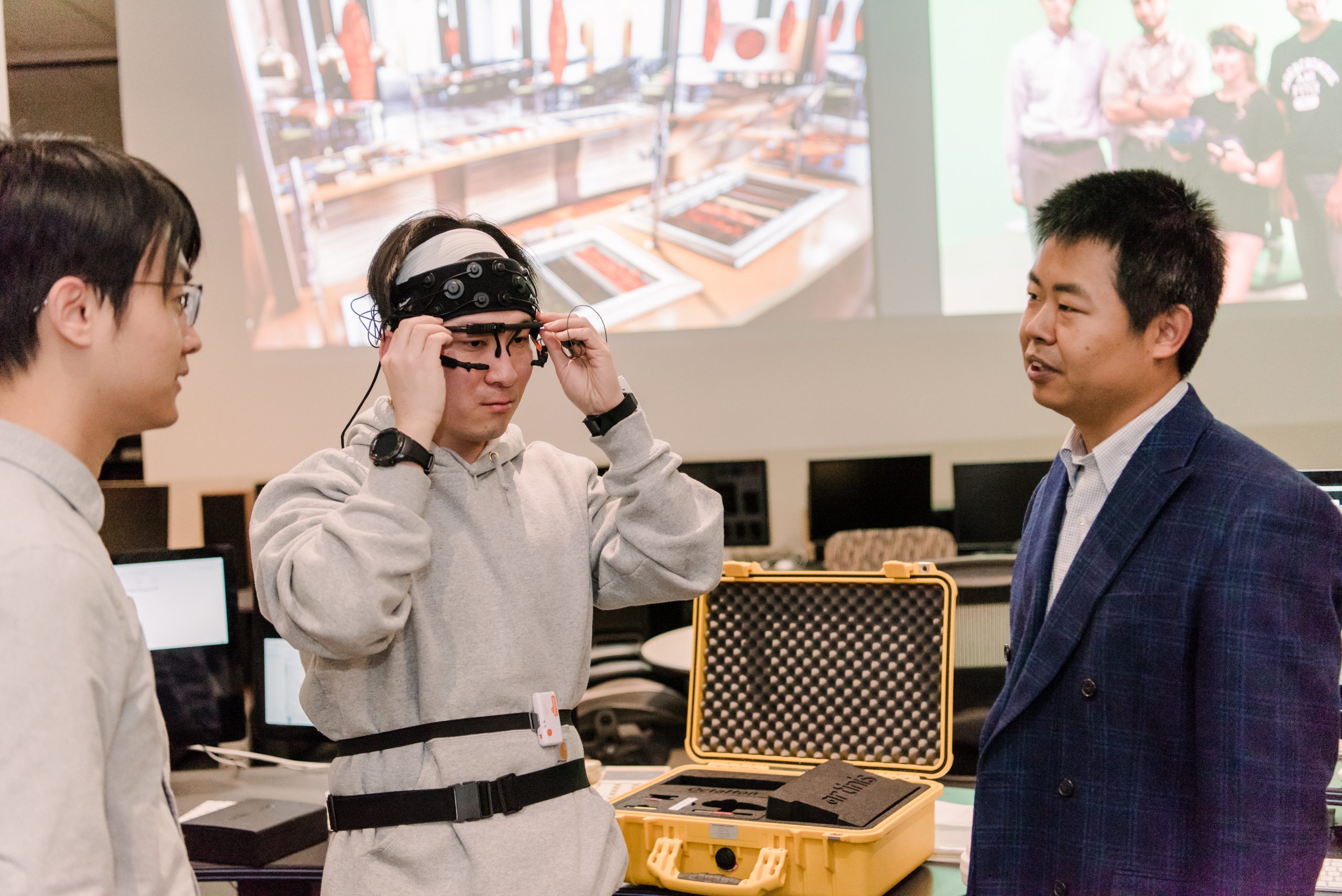After patients with breast cancer finish their treatment, they are prescribed daily medications to prevent cancer recurrence. There are many factors that impact whether patients take their medications as prescribed, from medication cost and access to ability to keep track of a complex medication schedule.
“Despite the life-saving benefits of these medications, rates of adherence are low,” explains Jiaqi Gong, assistant professor of information systems at UMBC. He’s trying to change that and, in turn, to reduce rates of cancer recurrence.
Understanding behaviors
Gong is working with researchers at the University of Virginia and San Diego State University to study the links among a broad range of factors that can influence medication-taking behavior in breast cancer survivors. The research is being funded by a four-year grant that totals more than $1 million from the National Institutes of Health.
The goal of the project is to design an intelligent, wearable sensor system for breast cancer survivors to help them more closely follow their prescribed medication routine, he explains. The study homes in on the times patients take medications each day. Why? Patients who do not take their medications at the same time each day can develop health issues in the future, such as kidney disease.

“This interdisciplinary team will develop a new paradigm in dynamic monitoring and modeling of medication adherence,” says Gong. “We will focus on understanding the links between environmental, personal, and behavioral contexts of medication-taking behavior.”
“Since coming on board I have been involved in data analysis and preliminary literature reviews. I have focused on analyzing data derived from previous questionnaires and sensor monitoring,” explains Akiri Surely, Ph.D. ‘22, human centered computing. “Eventually, the hope is that this research will provide an innovative way to improve medication adherence among breast cancer survivors in years to come.”
Identifying patterns
The project includes three phases. First, the team will develop a system to monitor when patients take their medication. The system will rely on wearable sensors that are connected to each patient’s smartphone. Gong explains that the system will provide researchers with continuous data that will help them to identify patterns related to taking the medications.

Once the system has been developed, a small group of breast cancer survivors will begin phase two: using the devices to track when they take their medications. This will give the researchers an opportunity to identify and analyze patterns in how they take medications using real data. After the pilot, phase three will begin: testing the system with a larger number of breast cancer survivors.
This work is one of the first attempts to deliver personalized interventions to increase medication adherence. Although the study focuses on breast cancer survivors specifically, Gong hopes the findings will have a broader impact. He explains, “By increasing our understanding of medication adherence in breast cancer survivors, we hope this study will provide a general framework that can apply to chronic diseases beyond breast cancer.”
Banner image: Jiaqi Gong, right, working with Dae-young Leroy Kim, Ph.D. ’25, information systems, and Xishi Zhu ’23, information systems. Photo by Marlayna Demond ’11 for UMBC.




